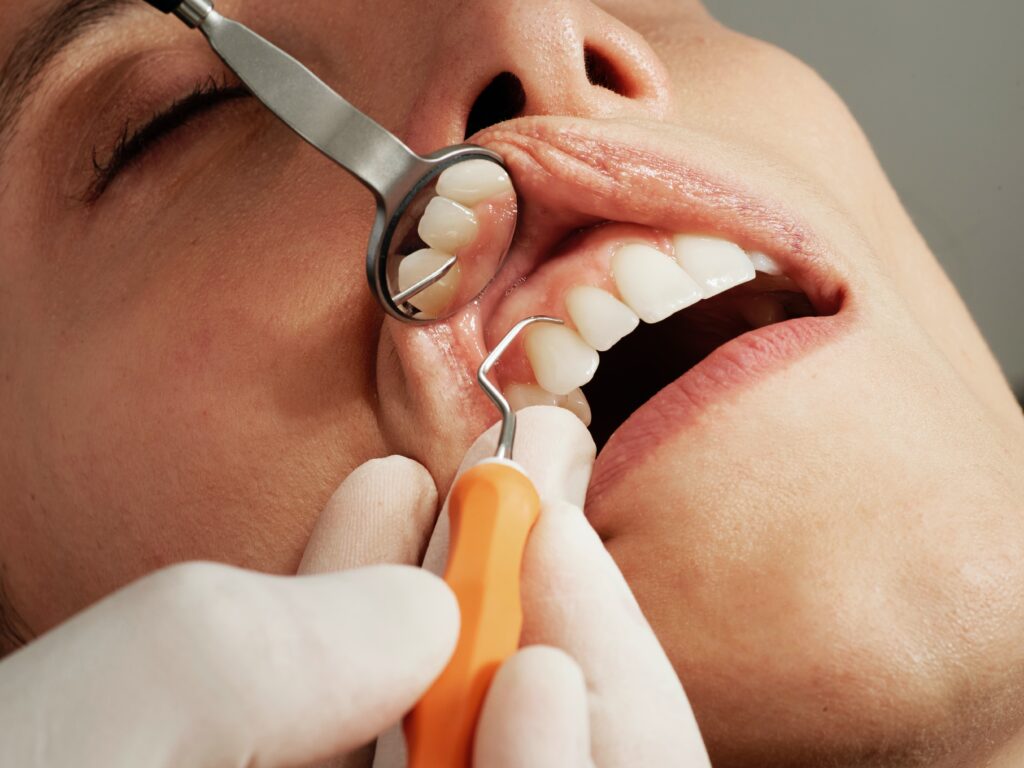Before diving into the details of how a TMJ specialist can assist you, it’s crucial to first understand what the Temporomandibular Joint (TMJ) disorder is and the symptoms that it presents.

TMJ disorder, also known as temporomandibular joint dysfunction, is a condition that affects the joint connecting your jaw to the temporal bones of your skull. This joint is responsible for movements like chewing and speaking, and when it’s not functioning correctly, it can lead to a range of uncomfortable symptoms.
The causes of TMJ disorders can vary from person to person. Some common causes include injury to the jaw, arthritis, teeth grinding, and stress, among others. It’s important to seek help from a TMJ specialist if you suspect you’re suffering from this disorder. For more information on the causes, you can refer to our article on tmj causes.
There are several symptoms associated with TMJ disorder. However, it’s worth noting that these symptoms can also be attributed to other medical conditions, making it crucial to seek professional help for an accurate diagnosis.
Some common symptoms of TMJ disorder include:
| Symptoms | More Information |
|---|---|
| Jaw Pain | Jaw Pain |
| Jaw Clicking | Jaw Clicking |
| Jaw Popping | Jaw Popping |
| Difficulty Chewing or Speaking | TMJ Disorder |
| Earache or Tinnitus | TMJ Disorder |
Remember, while these symptoms can be unsettling, it’s important not to self-diagnose. If you’re experiencing any of these symptoms, it’s best to consult with a qualified TMJ specialist who can provide a comprehensive examination and discuss appropriate tmj treatment options.
When it comes to managing and treating TMJ disorder, the expertise of a TMJ specialist is invaluable. A properly trained professional can provide a comprehensive approach that addresses the root causes of your symptoms and provides lasting relief.
A TMJ specialist is a healthcare professional who has undergone extensive training in diagnosing and treating disorders related to the temporomandibular joint (TMJ), the hinge-like connection between your jaw and skull. Most commonly, these specialists are dentists or oral surgeons, but they can also be physical therapists or chiropractors with specialized training in this area.
They possess a deep understanding of the complexities of the jaw and the surrounding structures. This expertise allows them to accurately diagnose conditions like TMJ disorder and develop effective treatment plans. If you’re experiencing symptoms such as jaw pain, jaw popping, or locked jaw, a TMJ specialist is the right professional to consult.

When you first visit a TMJ specialist, they will begin with a comprehensive review of your medical history and a discussion about the symptoms you’re experiencing. This is your opportunity to share any concerns or questions you may have, so it’s a good idea to prepare in advance.
Following this, the specialist will conduct a physical examination of your jaw and face. They may assess your jaw’s range of motion, listen for any clicking or popping sounds, and check for areas of discomfort or tension. In some cases, you may also undergo imaging tests, such as X-rays or an MRI, to get a clearer view of your jaw and its structures.
Based on the findings of your examination, the specialist will then develop a personalized treatment plan to address your specific needs. This could involve a range of treatments, from TMJ exercises and TMJ therapy to more intensive interventions like TMJ surgery.
Remember, every person’s experience with TMJ disorder is unique, so your treatment plan will be tailored to your individual symptoms and lifestyle. By working closely with a TMJ specialist, you can take a proactive step towards managing your condition and alleviating your discomfort.
When it comes to treating TMJ disorder, a TMJ specialist can offer a range of both non-surgical and surgical options. The choice of treatment will depend on the severity of the condition, the patient’s overall health, and the underlying cause of the disorder.
Non-surgical treatments are usually the first line of defense against TMJ disorder. These methods aim to alleviate pain, reduce jaw tension, and improve jaw function without the need for invasive procedures.
Common non-surgical treatments include:
In cases where non-surgical treatments are ineffective, a TMJ specialist may recommend surgical options. These are usually reserved for severe cases of TMJ disorder that cause debilitating pain or significantly affect the patient’s quality of life.
It’s important to understand that both surgical and non-surgical treatments have their benefits and risks. Therefore, it’s vital to discuss these with a TMJ specialist before deciding on the best course of action. Always remember that your comfort and health are our priority, and we strive to offer the best possible treatments for TMJ disorder.
For more information on treatment options, visit our article on tmj treatment.
Living with jaw pain can be debilitating and significantly impact your quality of life. If you’re facing persistent discomfort or other symptoms related to Temporomandibular Joint Disorder (TMJ), seeking help from a professional, specifically a TMJ specialist, is crucial.
TMJ disorder is a complex condition that not only involves the jaw joint but also the muscles, nerves, and tissues surrounding it. A TMJ specialist has the necessary training and expertise to accurately diagnose and treat this condition.
If you’re experiencing persistent jaw pain, difficulty in opening or closing your mouth, jaw clicking or popping, or other symptoms associated with TMJ disorder, it’s important to consult a TMJ specialist. They can provide a comprehensive evaluation and establish a personalized treatment plan to manage your specific condition and symptoms.
Additionally, TMJ disorder can sometimes be misdiagnosed as other conditions such as sinus problems or toothaches, due to the overlapping symptoms. A TMJ specialist has the expertise to differentiate TMJ disorder from other similar conditions, ensuring that you receive the correct treatment for your condition.
A TMJ specialist can offer a variety of treatment options depending on the severity and cause of your TMJ disorder. These can range from non-invasive therapies such as physical therapy, oral appliances, and pain management techniques, to more invasive procedures like TMJ surgery for severe cases.
Non-invasive treatments often involve lifestyle modifications, jaw exercises, and the use of oral devices like a TMJ splint or night guard. Pain management strategies can include medications, heat or cold therapy, and relaxation techniques.
For some patients, more invasive procedures may be necessary. This could include arthrocentesis (joint flushing), arthroscopy (minimally invasive joint surgery), or open joint surgery.
By consulting a TMJ specialist, you’re taking a significant step towards getting the relief you need. They can help identify the best course of action for your specific situation, ensuring that you can return to your daily activities without the persistent pain and discomfort associated with TMJ disorder.
Remember, when it comes to your health, seeking professional help is always the best course of action. If you’re struggling with jaw pain or other symptoms of TMJ disorder, don’t hesitate to reach out to a TMJ specialist. They can provide you with the expertise and care you need to manage your condition effectively.
Living with TMJ disorder can be challenging, but with the right self-care strategies and coping mechanisms, you can manage your symptoms effectively. Below, we delve into some daily self-care tips, coping strategies, and long-term management strategies for TMJ disorder.

Self-care plays a pivotal role in managing TMJ disorder. Here are a few tips that can help:
During flare-ups of TMJ pain, it’s important to have coping strategies in place. These may include:
For long-term management of TMJ disorder, a comprehensive treatment plan from a TMJ specialist is crucial. This plan may include:
Though living with TMJ disorder might be challenging, remember that there’s help available. With the guidance of a TMJ specialist, and by incorporating self-care and effective coping strategies, you can manage your symptoms and improve your quality of life.